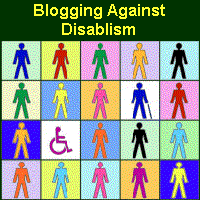In Memoriam: On the closure of SKILL, the UKs National Bureau for Students with Disabilities
I’ve written this post as part of Blogging Against Disablism Day, an annual event hosted by the Goldfish. Be sure to check out other contributions via her excellent blog. This post is about the closure of Skill, the National Bureau for Students with Disabilities in the UK, the only pan-disability organisation dedicated to promoting equality for disabled people in education, training and employment. Approximately two weeks ago the following message was posted to their website:
It is with great sadness that Skill: National Bureau for Students with Disabilities announces that it has ceased operating. Following a period of financial difficulty, Skill’s Board of Trustees has decided that it is no longer viable to keep the charity open. The Chair of Skills’ Board of Trustees, Peter Little OBE said “This is sad day for all of us. We had recently appointed an outstanding new Chief Executive and agreed a clear strategy to reduce our costs and turn around our finances, but in the end time was against us” […] It is hoped that others may step in to fill the gap this has left in the support available.

Does this constitute a suitable topic for Blogging Against Disablism? Well, read on. Unfortunately, I believe this loss will result in a kind of structural disablism rising unchecked. In the first place, I had hoped that this closure would elicit some coverage in national Education media, but it appears, to me at least, that current news frenzy dedicated to rises in tuition fees and wider issues of university funding have foreclosed on any coverage of this significant loss to the sector as a whole, and disabled students in particular. And this is a significant loss.
I was not aware of the financial difficulties facing Skill, and I have had few dealings with them directly. In these dealings, however, I have had a privileged view into some of the work they undertook – work that is extremely important – but receives little publicity. In my PhD thesis I identify Skill’s role consulting on the redefinition of UCAS and HESA’s much disputed disability codes – the cornerstone of the self assessment process that all students face when applying to Higher Education Institutions. In this consultation, they represented disabled students views, in a way no one else, seemingly, can. But this is by no means the most important work they’ve done. A recent response to government consultation, an evidence submission on The future funding for Higher Education is more typical of their output and their website continues to host a myriad of important documents for students and educators.
It is the loss of their expert advisors and staff that is the most worrying development, however, especially within a climate of cuts that are disproportionately hitting disabled people and students across the country. It is not simply that disabled students are members of both these groups. As the number of disabled students in higher education has grown under the auspices of equality legislation, a serious and unanticipated threat to disabled students’ participation has manifested in the administrative incompetence of the Student Loans Company.
On the 5th of February 2010, the BBC reported that:
Almost 12,500 disabled students in England are still waiting for grants to pay for specialist equipment, figures from the Student Loans Company show.
Disabled students wait for specialist equipment grants (BBC)
Since then, the SLCs failure to process 209,000 student’s grants and loans in autumn 2010, left half of all applicants waiting weeks, and in some cases, months for financial assistance. This had a direct and disproportionate impact on disabled students, threatening study and subsistence. As the Guardian reports:
At one point last year [2010], 87% of the 4 million calls to the SLC were going unanswered. Disabled students were disproportionately affected, with three-quarters of the 17,000 disabled students who applied for loans failing to receive them three months into the start of term. (Guardian).
Horrifyingly, with a view to the this academic year (beginning September 2011), the same Guardian article reports that the Student Loans Company Faces Ongoing Risk. The authors note that in 2010 the Student Loans Companry was only responsible for processing the applications of new students. From this year the SLC will be responsible for applications for grants and loans from all students in England. The system was previously administered by local authorities.
In this context, the loss of any disability advocacy seems perilous. Who will step in to fill the gap?
***update*** As of the 6th July 2011 the Disability Alliance has adopted Skill’s critical services for Disabled Students. Their Skill web space is under construction.
Thoughts and comments are very welcome, as always.